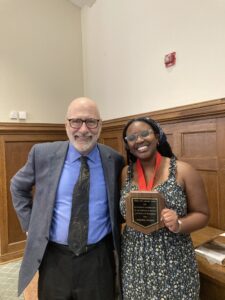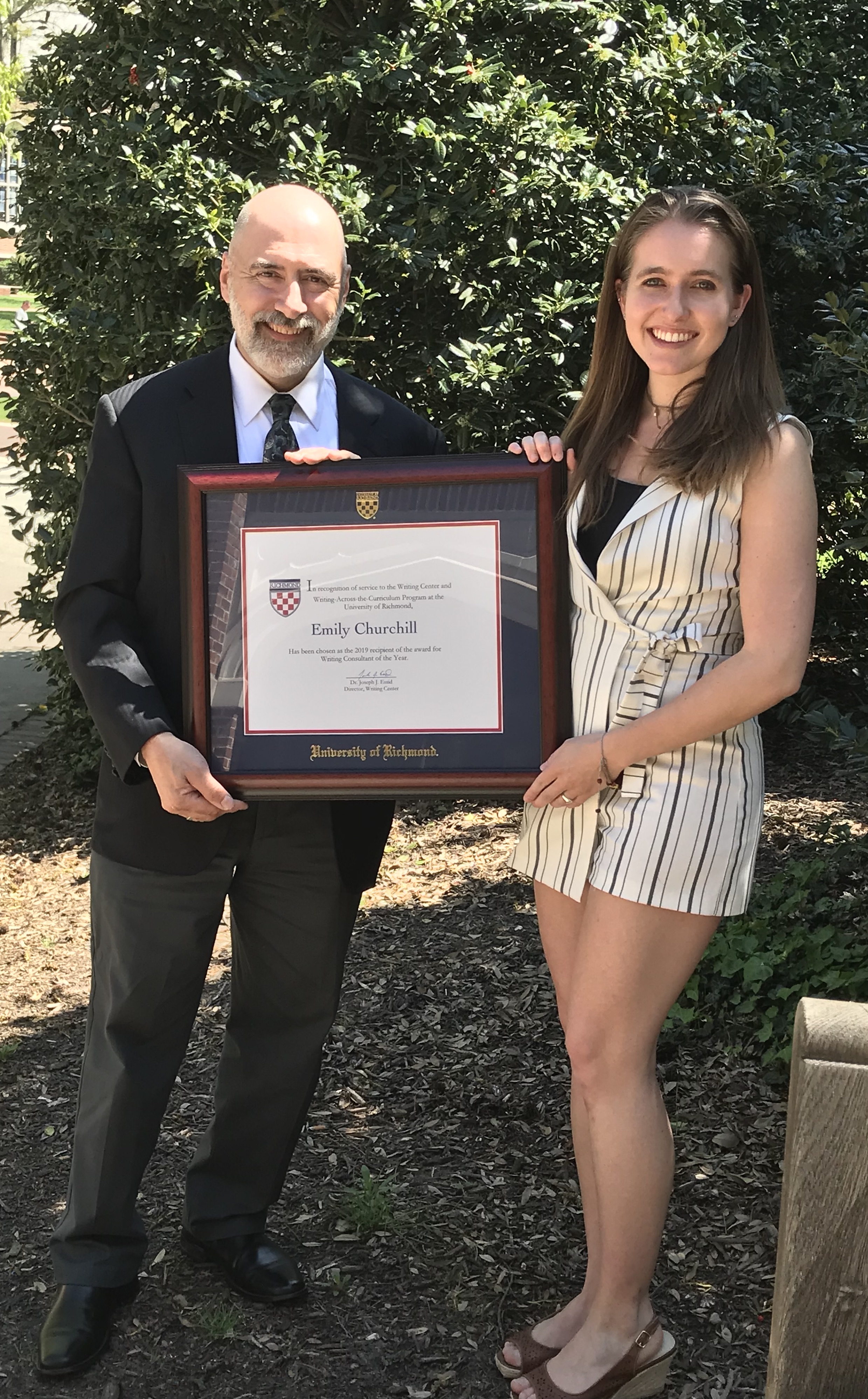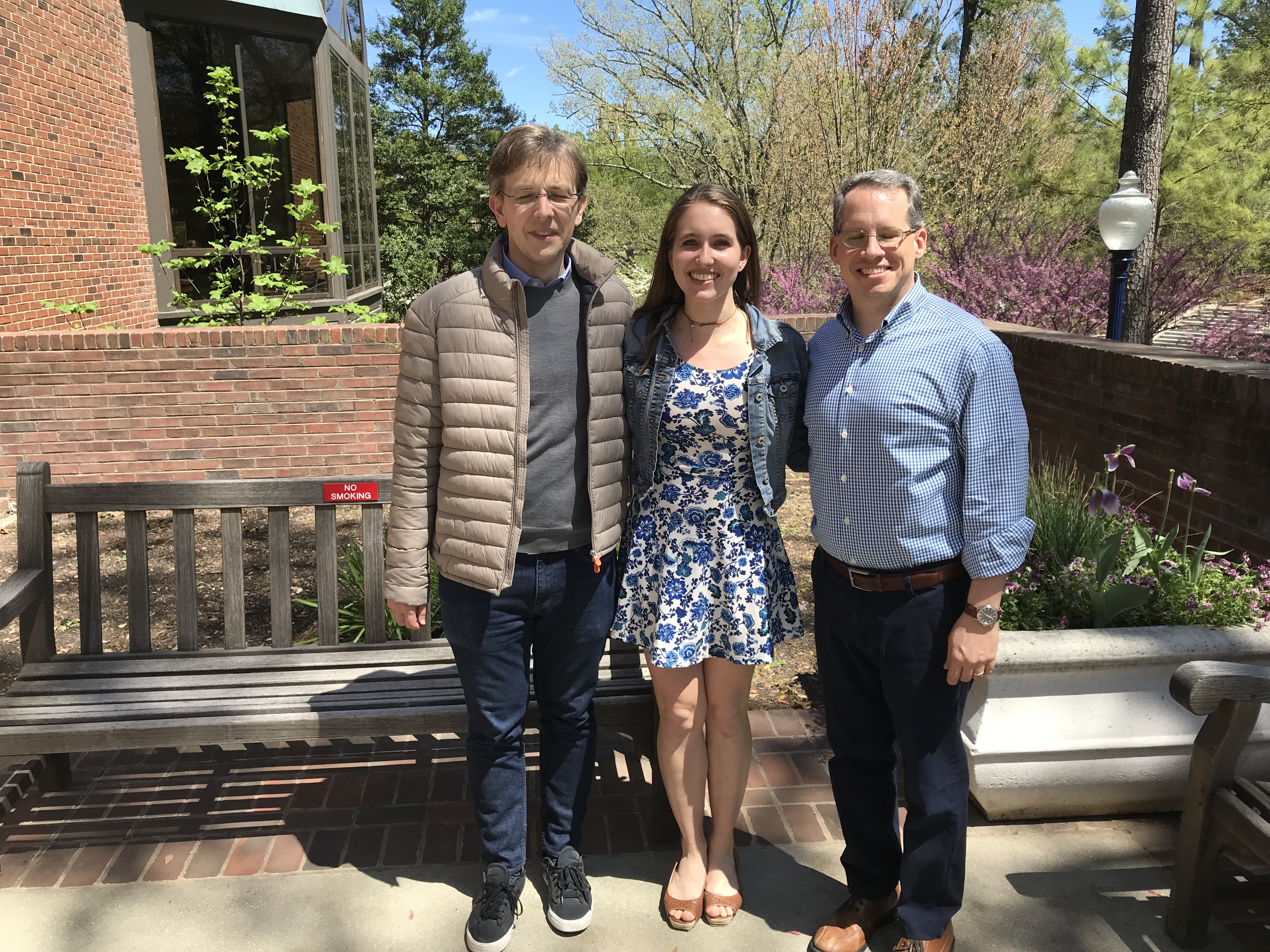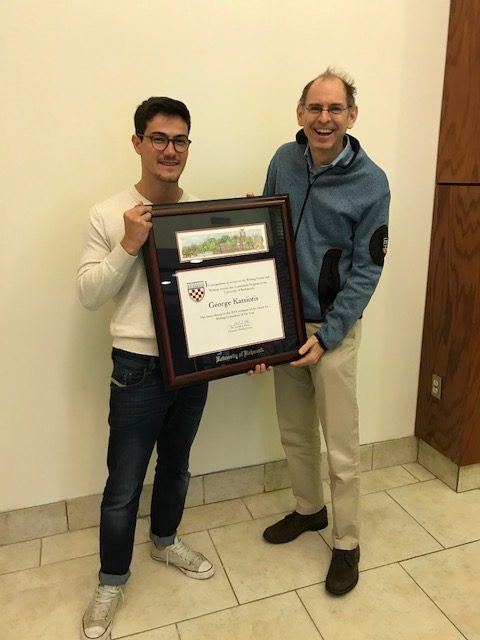 I made these remarks last month during Commencement-weekend festivities on campus. I want to share them here so those who were not present, as well as Makena’s family, can read them. Thank you again, Makena, for your hard work for the Writing Center and your professors!
I made these remarks last month during Commencement-weekend festivities on campus. I want to share them here so those who were not present, as well as Makena’s family, can read them. Thank you again, Makena, for your hard work for the Writing Center and your professors!
The Thomas West Gregory Award is named for a faculty member who, for many years, advised students seeking certification to teach English and is presented to the senior whom the English faculty judge to be the best English major preparing to teach.
This year’s winner of the Gregory Award is Makena Gitobu.
I met Makena when she was invited to join our Writing Consultant program in the fall of 2021. She trained with me the following semester then worked in our Center and with faculty directly, assigned to their courses. In that capacity, she did work we would normally associate with a graduate teaching assistant. For example, she wrote commentary on student drafts and held one-on-one writing conferences, a job that is both emotionally demanding and intellectually challenging.
During Makenna’s years at Richmond, she has demonstrated a consistent enthusiasm for this work. Makena wrote in a final project for me how she assisted a struggling peer named Jack. After asking Jack about his essay prompt, “I asked, in the simplest language possible, how he had planned to answer the question that the prompt was asking. This gave me a window into his thinking process, showing how he had decided to tackle the key elements of the prompt. Now that Jack had let me into his initial thinking process, I could address the paper’s macro-level issues with a strong idea of his desired direction.”
This approach embodies a semester of training in a single tutoring session.
Furthermore, I am not alone in recognizing Makena’s many talents. As my colleague Dr. Elizabeth Outka notes, “Makena radiates intelligence and POSE. A dynamic thinker and writer, she has been an essential part of the English Department since she arrived on campus.”
Dr. Kevin Pelletier appreciates our award winner’s interpersonal skills, stating ” Makena is such a gem. Smart, a fabulous writer, so so funny, beloved by all her peers, and as charming as they come. I’m really going to miss her.”
I will too. Her intelligence, as well as empathy for others will shine in a classroom, when Makena stands on the instructor’s side of the desk.
So please join me in congratulating this year’s Gregory Award winner, Makena Gitobu.





